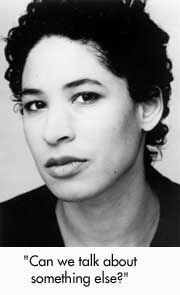Superhero Comics as Literature: “It was precisely this pathos that made the potential literary quality of superhero comics almost impossible. Before Starman, comics like the aforementioned Watchmen and Dark Knight Returns took the “reality principal” found in the early Marvel Comics, (Spiderman is really a nerdy shy high-schooler that can’t get a date) and gave it an edge that infused the comics with a real relevance. But quickly this “reality principal” itself became formulaic: Marriage (Superman!), divorce, death, alcoholism (Iron Man!), violence, are certainly things that people experience, but when they happen in a cape it is almost impossible to control. You end up with worse caricatures than before, as when the superheroes only had secret identities so they could pay their rent.”
A New Frame for Comic Books: “It saddens me that, by and large, Americans still don’t know the literary value of comic books. Much of the world and certain domestic pockets already know that the cultural stereotypes on comic books is long past over and a new generation of exceptional works awaits our discovery.”
Are Comic Books Literature? “I, for one, am not ashamed to say that comic books are a form of entertainment no different than any other form of popular entertainment. As such, there’s about as much crap and as much good stuff in it as in any other entertainment medium. Comics can be clever, well-written, involving popular entertainment, but they’re pop entertainment nonetheless. That’s as should be. Comics aren’t meant to be literature, appealing only to those with cobwebs in their brains. Comics are meant to be enjoyed by all.”
Eddies in the Mainstream: “Clearly, repeating the past is a poor strategy to rejuvenate an art form. Nevertheless, the alternative that is most often offered, that comics adopt the subject matter and techniques of High Art, runs into a problem that is equally obvious at this point. ”
The Difference Between Comics and Literature: “The BOE claims that comics produced by Mavrides and other artists are not literature, but camera-ready commercial art, which is taxable. “
 Three Possibilities:
Three Possibilities: